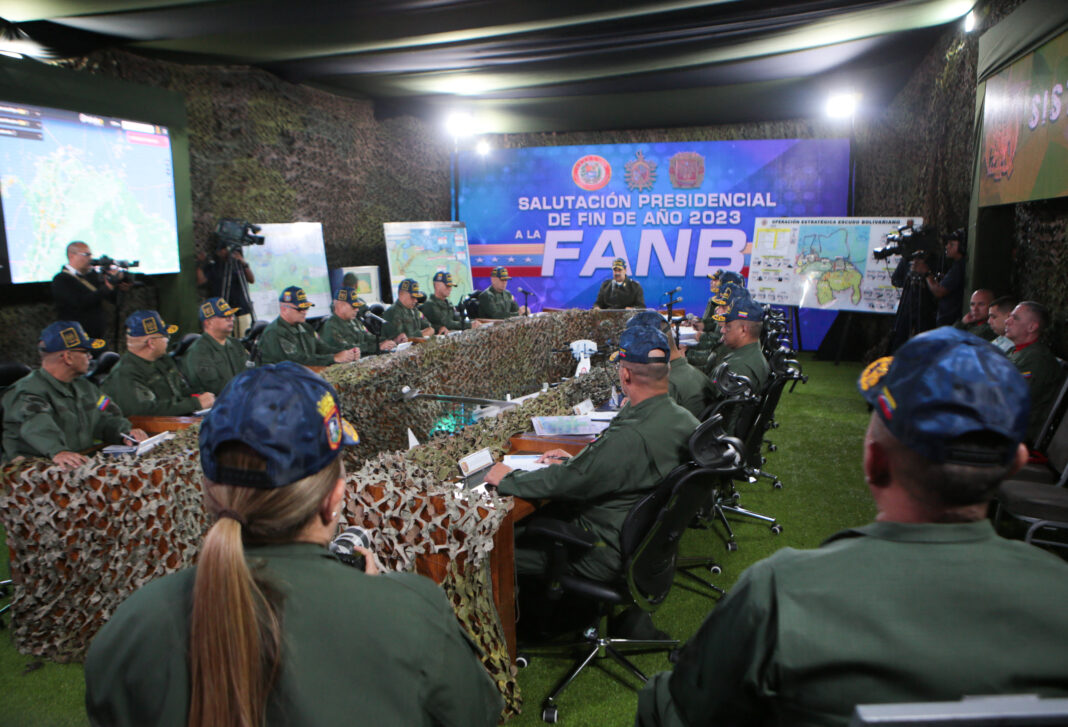Britain on Friday condemned the “unjustified” actions of Venezuela after Caracas ordered more than 5,600 armed forces personnel to participate in a military exercise near the border with Guyana in response to the UK sending a warship to the area.
“Venezuela’s actions against Guyana are unjustified and should cease,” a UK government spokesperson said.
Venezuela’s President Nicolas Maduro on Thursday said he was launching “a joint action of a defensive nature in response to the provocation and threat of the United Kingdom against peace and the sovereignty of our country”.
Days earlier, Britain said it would divert the patrol vessel HMS Trent to Guyana, a former British colony, amid the South American country’s simmering territorial dispute with neighbouring Venezuela over the oil-rich Essequibo region.
“The border between both countries was settled in 1899 through international arbitration and we continue to support the territorial integrity of Guyana –- an important regional ally and Commonwealth partner,” the spokesperson said.
“We are working with partners in the region to prevent escalation and continue to monitor the situation closely.”
Maduro claims that Essequibo — which makes up about two-thirds of Guyana’s territory — is actually Venezuelan land, a decades-old contention that has flared since massive oil deposits were found in its waters.
The rising tensions have raised fears in the region of a potential conflict over the remote area of 160,000 square kilometres (62,000 square miles).
The South American neighbours, during a meeting between Maduro and Guyana’s President Mohamed Irfaan Ali earlier this month, agreed not to resort to force to settle the dispute.
Maduro’s government held a controversial referendum on December 3 in which 95 percent of voters, according to officials in the hard-line leftist government, supported declaring Venezuela the rightful owner of Essequibo.
He has since started legal manoeuvres to create a Venezuelan province in Essequibo and ordered the state oil company to issue licences for extracting crude in the region.
© Agence France-Presse










